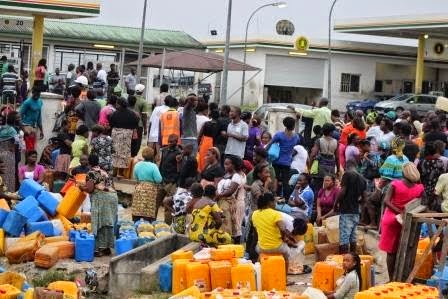

By our correspondent
The World Bank Country Office in Nigeria has warned that the incessant fuel scarcity and the inability of Nigerians to access new naira notes may influence uncertainty ahead of the February 25 and March 10 elections in the country.
According to a document by the bank, the deadline for old notes will socially and economically affect vulnerable people in the country.
It would be recalled that the Central Bank of Nigeria (CBN) had announced February 10 as the deadline for the exchange of old notes.
“The shortage of cash compounds fuel shortages which have been ongoing for months.
“There is a clear risk that cash shortages cause hardship and frustration which could escalate social tensions, especially in a febrile political environment ahead of elections on February 25 (presidential and parliamentary) and March 11 (gubernatorial)”, the document read.
The bank further disclosed 45 per cent of Nigerian adults had a bank account, 34 per cent pay or receive money digitally over the past year, while nine per cent made an in-store payment by digital means.
It projected Nigeria would not be able to attain a quick increase in digital payment to enhance the shortages of new notes across the country within the stipulated deadline.
“At about 9 per cent of total transactions, the level of digital payments remains very limited when compared to peer countries, limiting the number of digital use cases for most people’s daily transactions”, it said.
It further advised considering data on the size of the informal economy when promoting a rapid shift to digital payments, as informal businesses might face challenges in digitising their payment acceptance without undergoing a formalisation process.
“Digital infrastructure gaps (i.e., poor connectivity, limited national ID coverage, etc.) and the payment system’s operational reliability to absorb a steep increase of transactions from cash to digital in a limited timeframe










